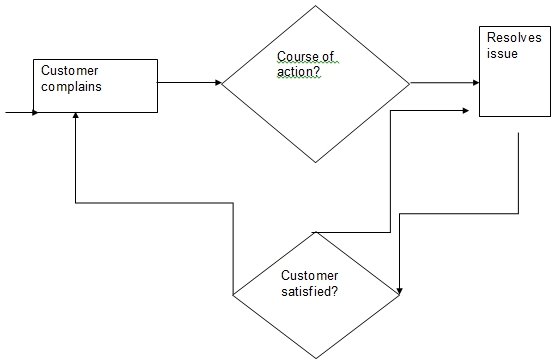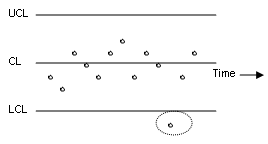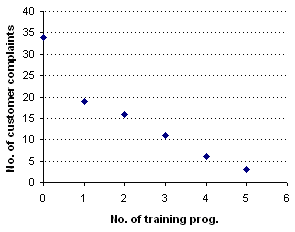Introduction
Quality management is one of the modern tools business organizations in the United Arab Emirates employ in confronting business challenges that come with modern approaches to doing business such as changing customer expectations and dynamic customer behavior.
That is the case with air traffic control and controllers at Etihad airways. Quality is an important aspect in air cargo operations, technical operations, the monitoring of weather conditions and other aspects for efficient running of the airport operations and service improvements.
For efficient operations at the airport, the principles of quality management, benchmarking employee responsibilities and tasks and the aspect of quality spanning the total organization, tools for quality management embedded in the six sigma steps for quality are key roles in driving the airway’s business organizations to better performance levels.
Recommendations call upon the management to factor issues such as effective and open communication channels, quality improvement plans that target both the customer and the employee, and customer focus at all levels of service provision to improve the quality of services to higher levels, among other recommendations.
Definition of Quality Management
Quality management is defined as the coordination of organizational tasks consistently focused at organizational policies implemented through clearly defined objectives using specific tools such as quality assurance, planning, control, and quality improvements throughout an organization’s hierarchy.
Therefore quality management principally focuses on customers, focused leadership, people improvement strategies, quality process techniques, quality management through a quality system approach, impeccable decisions and decision making processes, and organizational and stakeholder benefits. That is the case with Etihad airways.
Quality Management Contribution to Organizational Success
Successful business organizations factor the whole concept of quality management in tailoring themselves to success. Success, in terms of Etihad airways comes in terms of value gained by the customer, among other benefits, translating to higher organizational profits and customer satisfaction and quality service provisions.
However, organizations that do not factor the principles of quality management face severe penalties associated with organizational failures to comprehend and incorporate quality management policies. Such organizations largely lose their customer base and profits leading to failure in all aspects of the organization.
At Etihad, success has largely been the result of integral focus on quality management principles and approaches discussed below.
Quality planning
Etihad’s management keenly understands quality management planning strategies as a core driving element to business success. Quality planning incorporates identifying standards that define the rules to achieve customer satisfaction in its core international air carrying business to different global destinations with its current fleet of 54 aircrafts.
The management conducts a cost benefit analysis of the air carrier’s activities and benchmarks these activities against organizational goals and objectives. The time value for money, organizational efficiency against established benchmarks, business risks, and regulatory measures of different target business destinations underline the overall business objectives of the organization. In addition to that, business operations at the company are benchmarked against business best practices in the industry.
The benchmarking process incorporates aspects of identifying organizational performance in service provisions in the transport industry spanning the management hierarchy through every department of the organization. Quality planning within the business organization incorporates the creation a quality management plan strategically tailored towards organizational efficiency and productivity in quality service provisions.
The quality plan incorporates a quality baseline defined on quality metrics targeting customer satisfaction. The organization’s level of quality is benchmarked and evaluated against established metrics to ensure customer satisfaction. Satisfied customers not only come back and reuse the system, but bring other customers who need similar services.
The business organization’s quality plan outlines policies integral to the pursuit of quality standards and objectives to be achieved through the quality plan. Different departments contribute differently to the running of the business organization. Each individual in each department is assigned specific responsibilities and is obliged to fulfill them with an overall synergy towards quality implementations and achievements.
Each time, Etihad airway’s management conduct semiannual evaluations of their achievements by reflecting on the performance of the airline against long term and short term strategic objectives. That involves an evaluation of organization’s quality plan and its impact on the performance of the airline and employee productivity. In addition to that, similar airlines serve as points of comparison against which the airline evaluates itself.
Quality Assurance
Activities at Etihad airways are organized to systematically target organizational efficiency in the provision of air transport services. Quality assurance is a tool integrated in quality management within the organization to ensure each activity in each department meets established quality standards. Quality assurance provides the satisfaction that quality is being achieved at every department and that it is incorporated as an effective tool for achieving higher quality standards.
To ensure services adhere to established quality standards, the organization conducts regular quality audits to establish compliance to organizational quality policies. In addition to that, quality assurance audits are a measure put in place to ensure all processes and procedures meet the quality requirements defined in the organization’s policies.
Quality assurance audits are the responsibility of each department at Etihad airways overseen by the organization’s management at the top most hierarchy of management. Each department continuously devices ways of achieving higher quality standards while ensuring that departmental activities remain consistent with organizational policies and best practices.
Each department conducts an internal quality audit on a regular basis. These audits span employee productivity, attitude towards work, employee response to customer queries and concerns, and approaches to handling customers and their complaints. In addition to that, quality assurance is conducted at predefined intervals within the organization (Feigenbaum, 1991).
Quality Control
Quality control on the other is carried out continuously against organizational performance and employee productivity. Organizational performance spans a critical evaluation on returns on investment, profits generated from the air carrier’s transportation services, employee and customer satisfaction, and speed of service delivery.
In addition to that, customer complaints provide a clear indication of employee productivity and the levels of service quality. To ensure satisfactory quality provision is incorporated in the organizational pursuits, each element that contributes to waste and dissatisfaction is identified and eliminated in the process, to enable the organizational efficiency in serve provision (Etihad Airways Facts and figures, 2009).
Sound quality management and quality control principles ensure measures are continuously put in place to ensure errors are prevented from occurring in the whole process of handling customers within the airline. Errors can arise by booking a customer to the wrong destination, indicating wrong time about an aircraft’s departure, entering wrong figures on transportation charges, giving customers wrong information on flight schedules and a host of others.
Such errors should always be avoided to ensure quality services through a quality control mechanism. In addition to that, the airline always ensures that a mechanism is incorporated to ensure errors in the systems are kept free from customer hands. The airline takes responsibility for any errors as much as possible to ensure customers are well protected leading to customer satisfaction (Feigenbaum, 1991).
Quality control cannot be complete without a mechanism to ensure that results from quality audits are fully or tolerably accepted across responsible parties. When results are tolerably accepted, acceptable decision can be made that define the quality of the services provided at the airline, actions can be taken to correct anomalies within the system, and failures that may occur from the weakness of the system ca ne corrected. That is the case with Etihad Airways (Franceschini, Galetto. & Maisano, 2007).
As mentioned above, Etihad is a business organization run by experienced and clever executives. These executives have realized that a business organization cannot be driven to higher performance levels without incorporating aspects of business best practices. Quality metrics and quality polices are documented and open to every employee and any interested third party to access and read.
The organization has incorporated a mechanism for soliciting feedback from employees and customers on all quality issues and the quality of services offered at the airline. The management keeps track of the quality process by continually reviewing quality metrics and service provision practices to ensure quality is maintained at all levels of the organization. Quality management is a philosophy that is achieved by the use of different tools in its dimension as discussed below.
Tools and dimensions of Quality Management
QM is a philosophy that is implemented at Etihad through a variety of tools. These tolls enhance service delivery, quality, employee performance, and effective organizational management approaches in meeting customer needs and staying competitive in the market. In addition to that, they help in analyzing service quality and in identifying ways of improving services and products in line with organizational objectives (Juran, 1988).
A flow chart provides a pictorial representation of processes in service provision within Etihad airways. Flow charts improve employee and management evaluation of the processes involved and helps them identify areas demanding continuous improvement within the organization (Etisalat, 2010).

The flow chart clearly illustrates the process of a customer launching a complaint at Etihad’s customer relations department. Once the complaint has been launched, it is attended to and if the customer is satisfied based on the on the concept of QM, the customer may re-launch the complaint (Kossoff, 1993).

On the other hand, a histogram brings to light the productivity of employees at various points and the waiting time a customer needs to wait before an issue is solved. At Etihad, employee productivity and customer waiting time are integrated to ensure employee productivity is improved, wastes are reduced and employee efficiency is attained (Etihad Airways Facts and figures, 2009).
Another tool is the scatter diagram illustrated below.

The diagram has points plotted on a two dimensional graphical axes that indicates the relationship between the number of employees that have undertaken QM training within Etihad. In addition to that, it illustrates the number of complaints received from customers against training programs. The number of customer complaints and the number of training programs illustrate to what extent the TQM program has had an impact on customer satisfaction and employee productivity.
Sigma Steps at Etihad Airways
At Etihad airways, QM is a concept that embraces six steps in its integration process to the airline. These sigma steps include, defining a process, evaluating the existing system, analyzing the system against a benchmark, improving the process, and effectively controlling the new process.
Each process is defined against defined quality standards and the strategic vision of Etihad, the current Etihad system continually evaluated and training needs identified, each process is improved against set benchmarks, and effective controls are affected to ensure quality management benchmarks are adhered to (Easton, 1993). The company could move from one level of productivity to another and enjoy a strong customer base and higher profits.
Failures
However, it has been noted with time that services sometimes do not fulfill customer needs and expectations. This is significantly due to the quality gaps existing within a service. Among the quality gaps that exist in a service is the failure of the marketer to understand the communication about the quality of a service Etihad. Customers may communicate differently and the marketing department at Etihad may understand them differently.
The conflict in understanding between the customer and the service provider influences or creates a gap between customer perceived value and marketer perceived value of a service. The gap created with the two perceptions leads to reduced service ratings. In addition to that, the management hierarchical organization, lack of employee autonomy in decision making affect performance levels at Etihad airways.
Recommendations
From the above discussion; it is evident that the Etihad is on the right track in quality management despite a number of pitfalls that need acute attention from the findings on the organization’s approach to quality management. The management has failed to address internal quality management issues that span employee satisfaction that translates to organizational efficiency and performance.
Therefore, a quality plan encompassing organizational employees across each department and each hierarchy of management is the way to go. It is further recommended that quality audits be more frequent and measures for quality control be universally applied across each department. Quality control should be an organizational tool factored into organizational culture of the air line carrier.
Glaring disparities seem evident with the airline, though. Customer focus is one of the areas that the company should focus more, among the principles of good customer relationships. Satisfied customers always come back and spend more. The exponential demand for air transport services within and outside of United Arab Emirates has compelled air travel customers to impulsively use Etihad without regard for the quality of services offered at the company.
The management of the company should not bank upon profits generated by the company and volume of customers as a tool to conclude positively about services quality. In addition to that, the management should incorporate other principles such as real time processing of customer complaints, employee satisfaction, and excellent communication channels within the organizational employee workforce.
Communication feedback is an essential tool to effect quality management at different departmental and organizational levels. Therefore, communication channels should be made open to cultivate understanding between communicating parties within and outside of the organization.
In addition to that, organizational employees need some degree of autonomy in decision making, reducing the time lag between contacting higher organizational managers. In addition to that, the organization should embrace a strategy that allows employees to keenly listen to and understand customer needs and expectations. Then services may be tailored to meet customer needs and expectations besides increasing their flow and use of the airline.
Etihad Airways Profile
From: Etihad Airways
References
Easton, G. (1993).The 1993 state of US total quality management: a Baldrige examiner’s Perspective. California Management Review, 35(3), 32-54.
Etihad Airways Facts and figures (2009). Vol.7. Web.
Etisalat, (2010). About us. Web.
Feigenbaum A.V.(1991). Total Quality Control: Engineering and Management.
Franceschini, F., Galetto. M., & Maisano, D. (2007). Management by Measurement: Designing Key Indicators and Performance Measurement Systems. Springer-Verlag Berlin Heidelberg.
Juran, J. M. (1988). Juran on planning for quality. Cambridge MA: Productivity Press. A Life Cycle Approach, (5th ed) Homewood, IL, Irwin.
Juran, J. M. (1988). Quality Control Handbook. 4th ed. New York: McGraw-Hill.
Kossoff, L. (1993). Total quality or total chaos? HR Magazine, 38(4), 131-4.
Tyco Electronics. (2003). Total Quality management. Quality manual, 102(1). Web.